How to produce E-A-T Friendly content?
As SEO specialists, we come across this query frequently.
Your website is content-driven. Building Expertise, Authoritativeness, and Trustworthiness (EAT) is what drives Google to rank your site highly. You must make each piece of content worthwhile for good EAT signals to Google.
You must comprehend the operation of Google’s E-A-T algorithm in order to get a high ranking. However, because we recognize how busy you all are, PageTraffic has developed Your Guide to Google E-A-T & SEO.
Not only does Google encourage domains and organizations that best demonstrate their Expertise, Authority, and Trust, but also correlates and leads to increased customer trust and conversion rates among a company’s target market.
Websites can enhance how E-A-T is presented both on their own website and on other websites, such as review websites like Google My Business, TrustPilot, and Feefo, by using the many strategies mentioned in this infographic.
So, become E-A-T ready and improve brand recognition and brand sentiment as a result of the website’s E-A-T improvement.

What Does E-A-T Stand For?
Expertise
How knowledgeable is the author of the article you’re reading? Do you have any information about them? Are they well-known experts who have earned any honors? a Harvard student? This is important for a variety of reasons.
Google makes use of the phrase “everyday expertise” to indicate that authors are regarded as subject-matter experts if they have relevant real-world experience. The quality of the content itself is used to assess the writer’s level of skill.
Authoritativeness
Google considers the author, the content, and the website itself when determining authoritativeness. How credible are you and your website in actuality? It all comes down to who you are, what you stand for, and how well-known you are. Is your website an expert on the subject? Are there links or mentions of your content from renowned experts?
Trustworthiness
Google analyses a variety of signals to determine how trustworthy your site is. This might be as straightforward as technological reliability — does it have an SSL connection? — to more ethereal indicators like online debates about your company or how you handle online feedback.
How Important is E-A-T?
Importance for Google
Google says:
Certain themes or page kinds have the potential to affect a person’s long-term happiness, health, financial security, or safety. Such pages are referred to as “Your Money or Your Life” or YMYL pages. It’s clear that E-A-T is essential to how Google searches if you watch Google’s documentary on the subject and read Google’s QRG. In conclusion? Google employs the E-A-T criterion to rank pages in its search results.
Importance for Searchers
If users believe the website is secure, they will transact and exchange data. E-A-T keeps false and misleading information from being presented to searchers. Websites with high E-A-T levels will provide users with the most valuable material. The importance of EAT to searchers is that it makes them feel secure and confident in their search for information.
How Is E-A-T Measurable?
Expertise
A person who is an expert in an area is said to have extraordinary knowledge or skill in that discipline. But how does Google gauge subject matter expertise? You must produce content that conveys your knowledge in a way that your target audience can understand if you want Google to rank your pages.
WebMD Blog – Example of Expertise

Here are some basic guidelines for producing material that highlights your expertise:
- Learn everything you can about your intended audience.
- Find out what your target audience looks for by doing keyword research.
- Produce content that reflects searchers’ intentions.
Authoritativeness
When relevant visitors regard you or your website as the best source of information on the subjects they are searching for, your authority or reputation grows.
In Google’s words:
Real businesses, organizations, and other entities are frequently represented on websites. The firm, organization, or other entity that the website is actually representing as well as the website itself are both subject to reputation investigation.
How can you establish authority now that you know what Google is aiming for? Here are a few brief pointers:
- Get links back from reputable websites in your niche.
- Google views mention from reliable websites as a mark of reliability.
- Improve your brand.
Trustworthiness
The term “trustworthiness” refers to the dependability and legitimacy of the website, the main content developer, and the content itself.
You can gain your audience’s trust in the following ways:
- Create privacy and T&C pages that are simple to visit.
- Create a page on your returns and refund policy that is both concise and satisfactory
- All of your posts should clearly display your author bio.
Also Read
- What Is SEO and How Does SEO Work? Starter SEO Guide
- How to Grow Your Startup Business With SEO
- What Is Enterprise SEO? (Definition, Examples & Strategies!)
How to Demonstrate E-A-T and Rank Higher on Google
Make Your Author Bio Better
Look at well-known magazines and blogs in your industry, and you’ll see that they all share the following characteristic:
The Search Engine Land author bio format is as follows:

The following is how Copyblogger promotes its authors:

Article Date
We do know that the publication date of the story, which is noted in the transparency part of the Google News standards, is vital for inclusion in Google News:

References
You can really increase your authority by linking to other reliable resources of knowledge in your industry.
You can include references in your pages in a variety of ways, including by offering:
- image sources
- expert industry quotes
- properly anchored text-based links
- Reference sections at the bottom of the page

Policy Pages
It is repeatedly stated in numerous Google publications that having an easily accessible policy and customer service pages greatly contributes to the trustworthiness and usability of your website. In order to achieve this, we advise making specific pages for each category of policies applicable to your website and linking to them from the footer of your website:
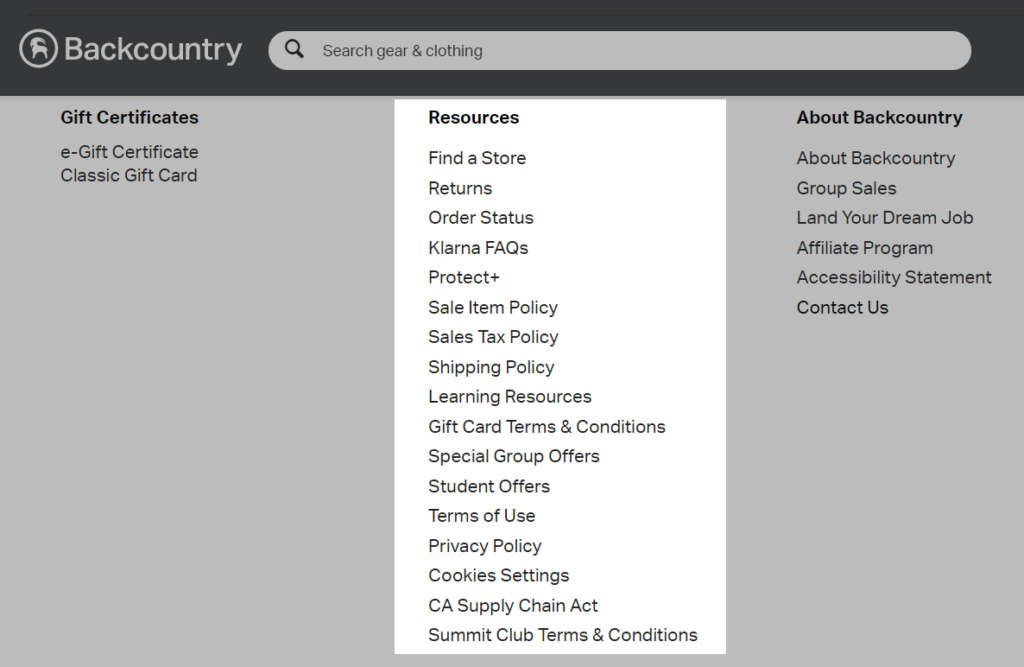
Business Details
The publication of information about the company itself is another indicator of transparency, somewhat related to the previous point.
These are a few of the pages that can assist you in fostering transparency:
- About (vision, mission, history, competitive advantages)
- Meet the group
- Our company
- Contact information
Additionally, you may once more utilize structured data to classify the business information that is published on your website if you want Google to notice your attempt at transparency.
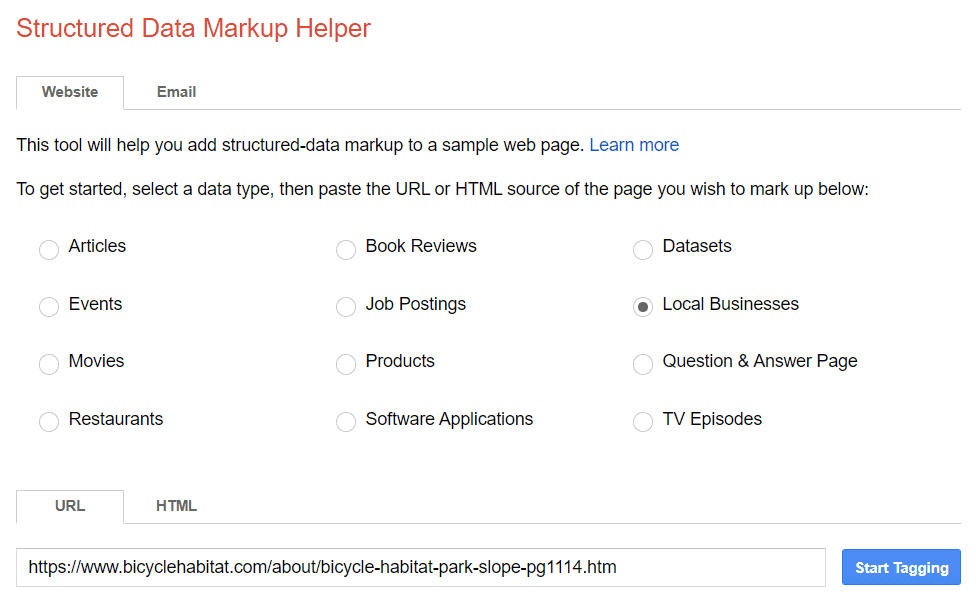
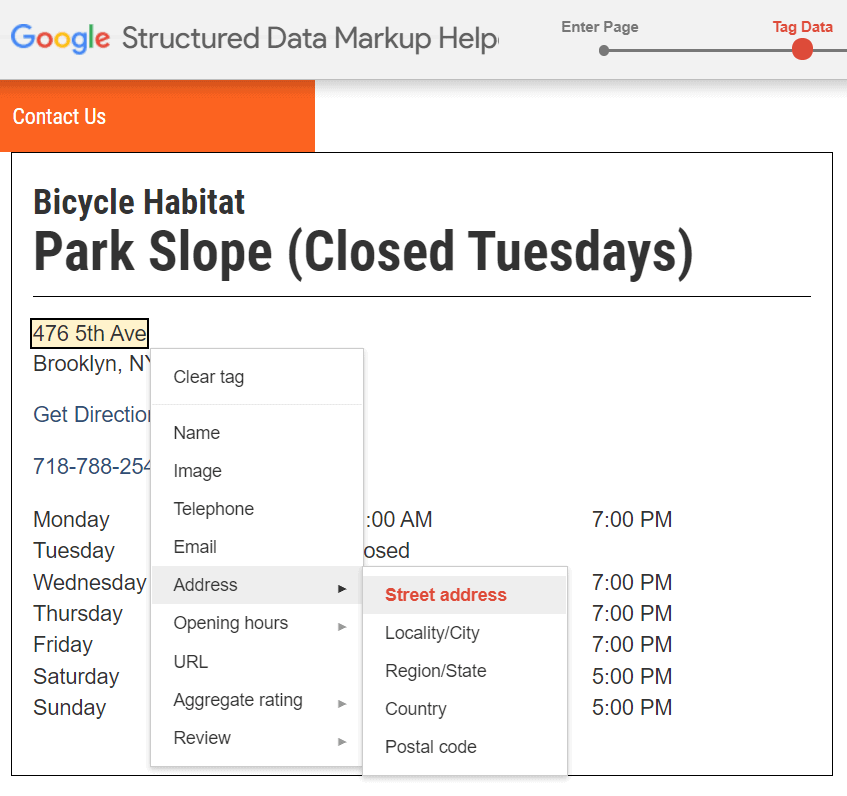
User Generated Content
A wonderful method to show that your website draws real visitors and interests them enough to get feedback is by displaying user-generated content on it. Consequently, allowing users to post comments, reviews, queries, and other forms of user-generated content on your website may be advantageous in terms of E-A-T.
HTTPS
One of those signals is HTTPS, about which we don’t need to speculatively make assumptions because Google routinely states as much in its publications, including the Quality Raters Guidelines. Recently, along with Core Web Vitals, mobile friendliness, and interstitials, HTTPS has been highlighted as one of the page experience factors:

External Signals
Because external signals aren’t actually added to your website, this is a little bit of a cheat. However, there are still a couple of external signals that you may change that are crucial to your total E-A-T profile. Here is one of them-
GMB Listing
The most important location to visit to find out more about a local business is currently Google My Business, the ultimate business directory.
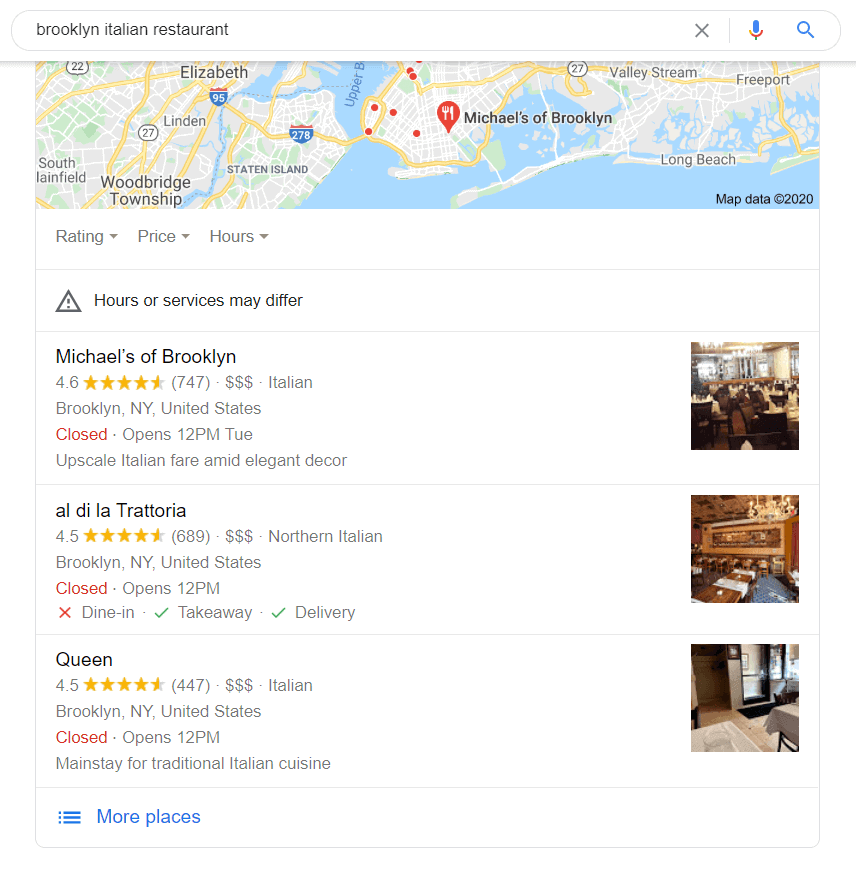
Pay Attention to Search Intent
One kind of search intent is transactional search intent. The four most typical categories of search intent are as follows:
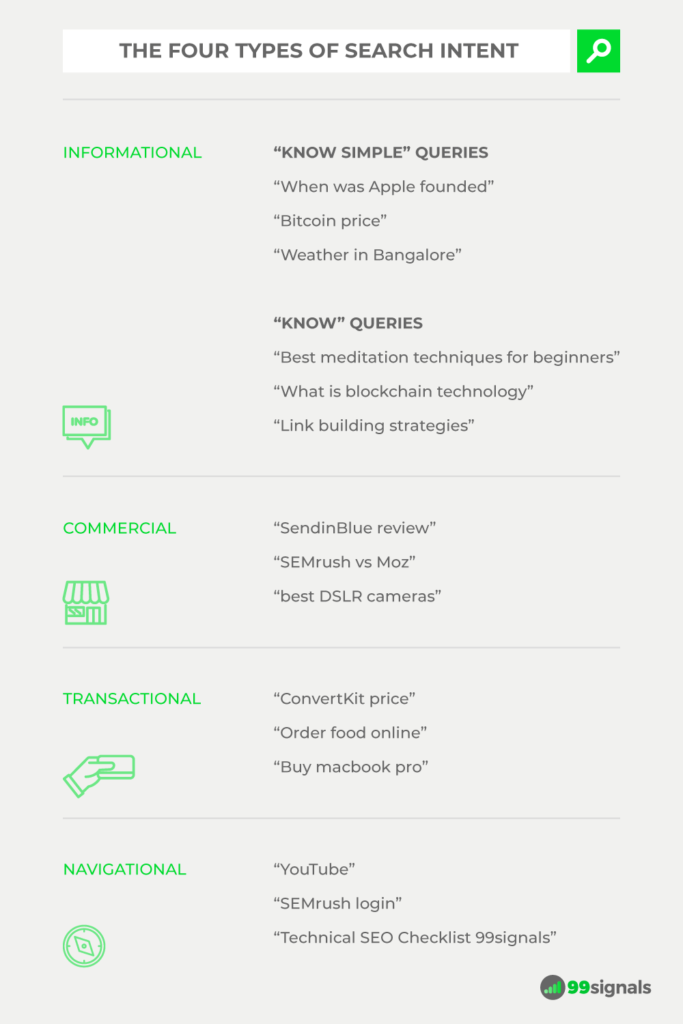
Consequently, how can you provide content that is relevant to the search intent of the keywords you are aiming for?
- Examine the search results for the terms you want to targe
- Select the appropriate content type
- Update and relaunch current content.
- Enhance the user experience on your website
Update Your Content
Update and republish your blog content frequently.
What is the best way to revamp and relaunch your content?
- Update your material with new data
- Optimize the terms you want to target
- Add fresh visuals
- Restart the posting
Build Authoritative Backlinks
Backlinks are the best sign of the authority of a website. As a result, having a lot of high-quality backlinks pointing to your website can boost your chances of ranking better in SERPs.
Want to increase the authority of your website and create high-quality backlinks? Here are only a few highlights:
- Create link-worthy content
- Steal your competitors’ top backlinks
- Do broken Link Building
- Create Interactive Content
Do Keyword Research
The hard reality is that you must master the keyword research process if you want to rank higher in search results.
You should take into account the following five crucial metrics when conducting keyword research:
- Search volume
- keyword difficulty level
- Average cost per click (CPC)
- Trend
- The top 100 Google results for your seed keywords
The data on the aforementioned 5 indicators can be found in Semrush’s Keyword Overview report, which you can use to quickly analyze your target keywords.
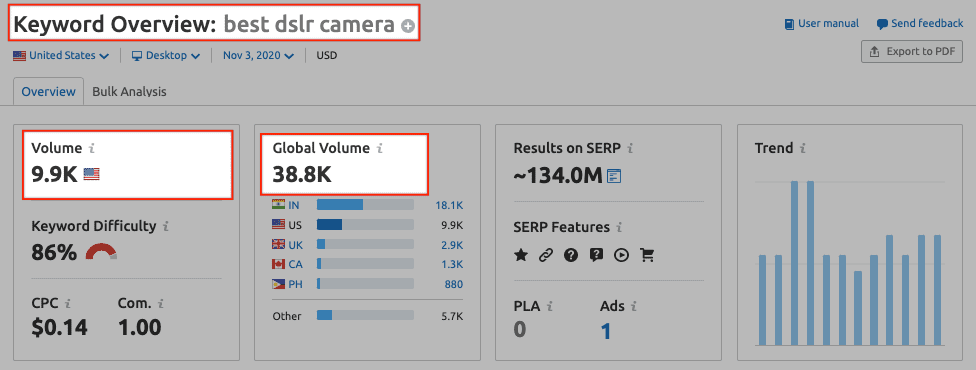
Similarly, many more keyword research tools are available which can be used.
Last Words on Google E-A-T
E-A-T is an important factor in how Google ranks sites. Your competitors will eventually outrank you if they are doing a better job displaying E-A-T than what’s displayed on your site, so try the above suggestions to improve EAT and increase the likelihood of ranking well!
Frequently Asked Questions
What is the E-A-T principle in SEO?
E-A-T stands for Expertise, Authority, and Trustworthiness. EAT is a concept in Google’s Search Quality Guidelines; it is not an algorithm. In essence, Google assesses the quality of pages based on these three factors. Where that website appears in search engine results pages depends on its quality. EAT also serves as the foundation for Google’s algorithm improvements.
Is E-A-T a ranking signal?
There is no ‘E-A-T ranking factor’ in the sense that there is no quantifiable E-A-T score or rating that will influence the position of your website in search results. E-A-T is ultimately a concept rather than a ranking element. However, Google examines very genuine signals for ranking purposes, and the E-A-T architecture represents those signals.
Does Google still use E-A-T?
E-A-T is incorporated into Google’s Search Quality Evaluator Guidelines and its algorithm. Google acknowledges the importance of E-A-T and you will be able to experience it after you regularly start following it. If you work in the SEO industry, you have probably heard a lot about E-A-T lately and it is because of the fact that this concept is giving good results to a lot of marketers.
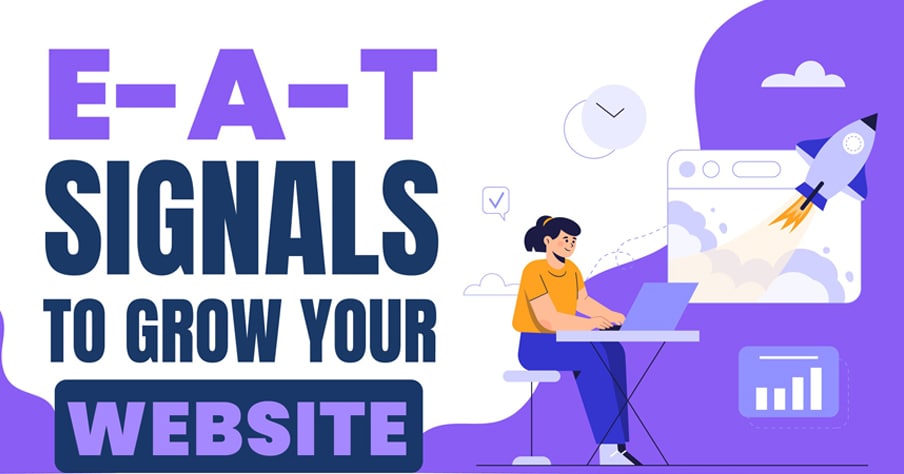





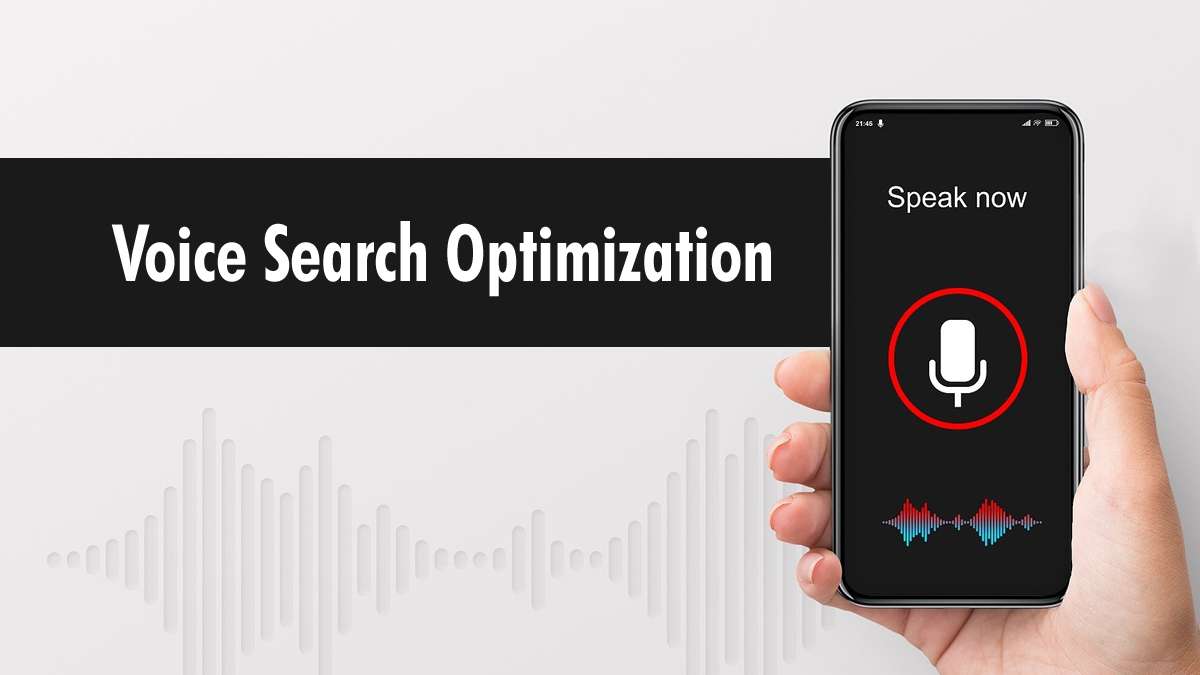



















 RSS Feeds
RSS Feeds